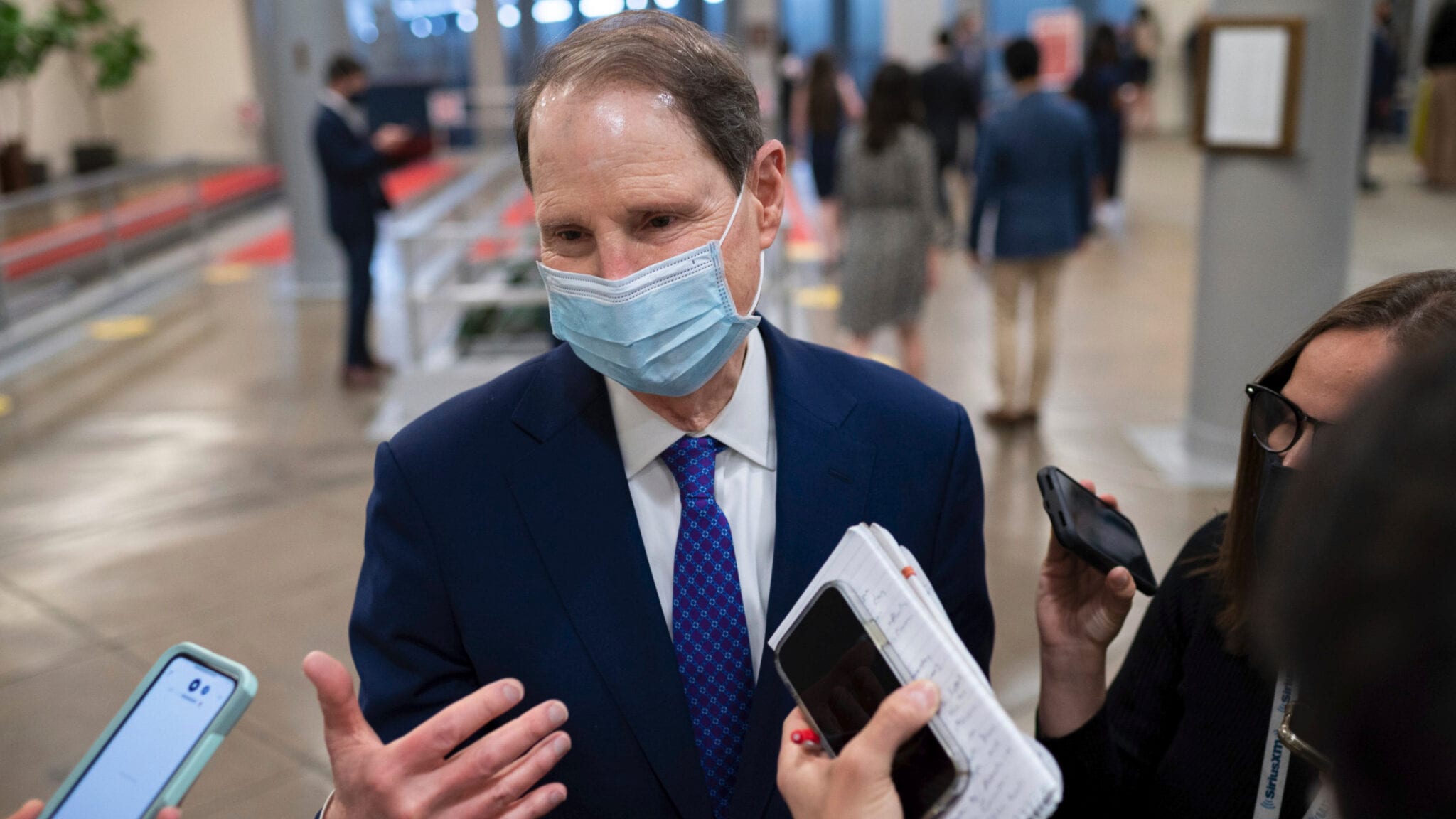
Sen. Ron Wyden (D-OR) with reporters in the Senate Subway (Graeme Sloan/Sipa via AP Images)
Top Wyden priority for drug price reforms: Medicare negotiations
As the Biden administration tries to wrangle the details of its infrastructure bill, Senate Finance Committee Chair Ron Wyden (D-OR) took a concrete step forward …
Sign up to read this article for free.
Get free access to a limited number of articles, plus choose newsletters to get straight to your inbox.